EPALE 2021 Thematic Focuses
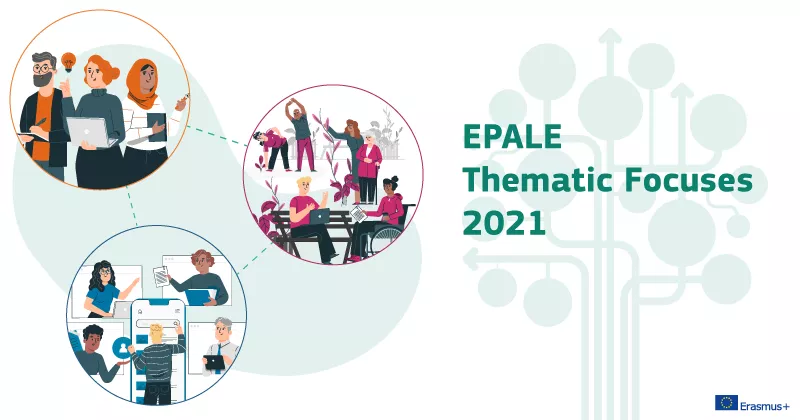
Welcome to the 2021 EPALE Thematic Focuses!
This looks to be a very interesting year ahead for adult education. We have learnt a lot form the Covid-19 crisis. We were forced to reinvent our old ways. We realised that there were a lot of interesting things waiting for us to experience but also that certain inequalities became exacerbated as a result of the crisis. With all this in mind, we intend to focus on three main themes. We will focus on all of them throughout the year, monitoring how things develop over the next few months and exploring each of them in our own time.
We invite you to contribute, share your opinions, experiences, projects, and ideas!
So, let’s get started! Here are the 2021 Thematic Focuses in details.
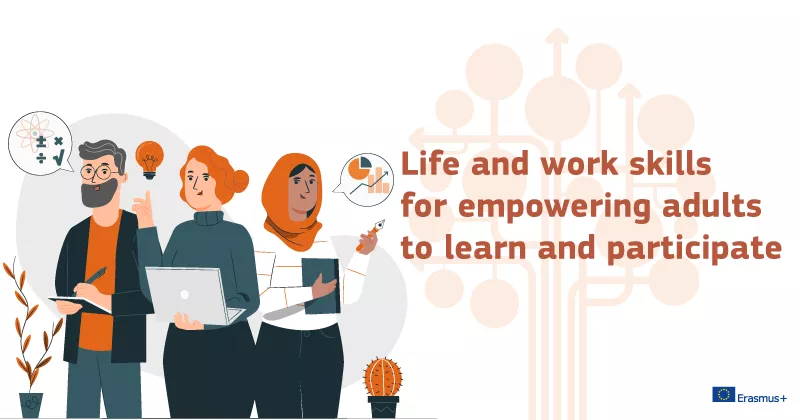
Life and work skills for empowering adults to learn and participate
The European Skills Agenda for sustainable competitiveness, social fairness and resilience sets ambitious objectives for upskilling and reskilling to be achieved within the next 5 years. Within this framework, EPALE is also engaged in empowering the adult education community to foster lifelong learning, and the quality of adult education.
In this context, the Focus on Life skills for empowering adults to learn and participate will address the topics of upskilling and reskilling for work and life, the relevance of basic skills and the urgency of health and media literacy especially in the light of the evidence emerging from the pandemic.
Moreover, we ask how we can enhance basic and advanced digital skills and competences for the digital and demographics transformation.
Have your say!
Write a Blog post, or a News article! Suggest an Event or share a Resource!
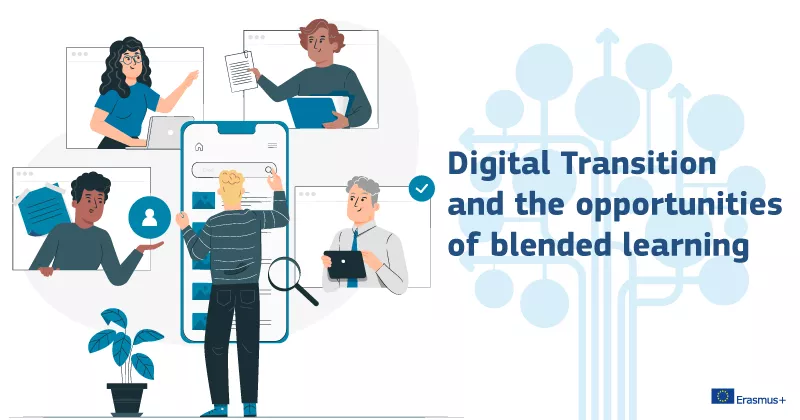
Digital Transition and the opportunities of blended learning
The COVID-19 crisis has had an unprecedented impact on adult education and left many in the field asking what comes next. It is now clear that education and learning will remain blended, combining online and face-to-face dimensions.
Resetting education and training for the digital age is a key objective to be addressed when focusing on the future of Adult Education and how to reshape it in the light of the Digital Transition. We want to hear from you!
How can the digital divide be overcome? How can we ensure rural areas are involved in the process? How can we make the most of blended education? How can we keep learners motivated through digital means? How can we foster an inclusive digital education and blended ecosystem?
These factors, together with the increase in artificial intelligence in education, amplify ethical issues traditionally encountered in face-to-face education. So, how can such aspects be dealt with? What opportunities will emerge?
Write a Blog post, or a News article! Suggest an Event or share a Resource!
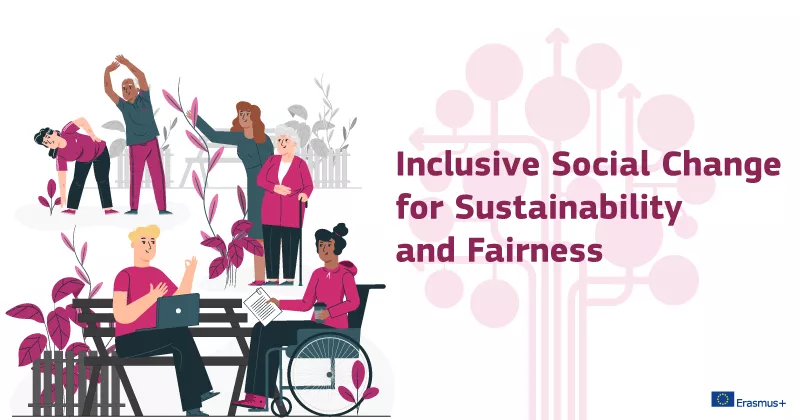
Inclusive Social Change for Sustainability and Fairness
Building on the Commission’s vision for a strong social Europe for fair transitions, the European Skills Agenda sets out a comprehensive strategy for strengthening sustainable competitiveness (as set out in the European Green Deal), ensuring social fairness, and building resilience to react to crises. Based on the lessons learnt during the COVID-19 pandemic, this comprehensive approach is a guideline to address the themes of Social Inclusion of vulnerable groups, Diversity and Active ageing.
In particular, we would like to approach these broad themes from two specific angles:
• Sustainability:
Adult education plays a key role in sustainable development and promotes social and environmental dimensions of sustainable development by enabling positive conditions for empowering active citizens. The Ecological transition will help modernise and create new high-quality jobs and more job opportunities, and Adult education should be ready to contribute with upskilling and reskilling trainings.
How can the field of adult education contribute more to sustainability efforts? Are you involved in projects or are you running activities which may represent a case study? Do you match sustainability and trainings in your everyday life? Inspire us with your ideas!
• Fairness:
Everyone has the right to quality and inclusive education, training and life-long learning in order to be able to participate fully in society and successfully manage transitions into the labour market. So, how can we guarantee the right to education for adults with disabilities and those socially excluded? How can social inequalities be ironed out?
Share your perspective and highlight some major issues!
Write a Blog post, or a News article! Suggest an Event or share a Resource!
In focusing on such Themes, we invite everyone to follow an overall approach based on the perspective of Democracy and Access, which will feature throughout our work over the coming year.
So, we invite you to enrich what is set to be an intense year ahead with your contributions and expertise!
You can already start by taking part in the next online discussion scheduled for Tuesday 9 March 2021 from 10 a.m. to 4 p.m. CET.
The written discussion will be introduced by a livestream with an introduction to the 2021 Thematic Focuses, and will be hosted by Gina Ebner and Aleksandra Kozyra of the EAEA on the behalf of the EPALE Editorial Board. The written discussion will be moderated by Claudia D'Eramo and Sara Saleri of the EPALE Central Support Service.
Don’t miss the chance to have your say on what you would like to be addressed during the year!
Write a Blog post, or a News article! Suggest an Event or share a Resource!



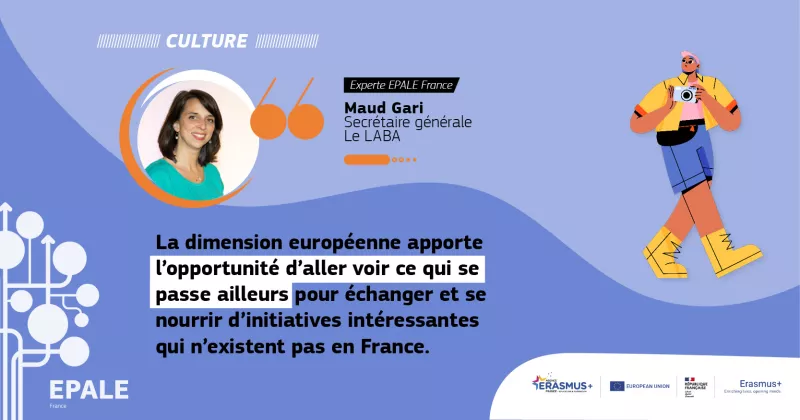
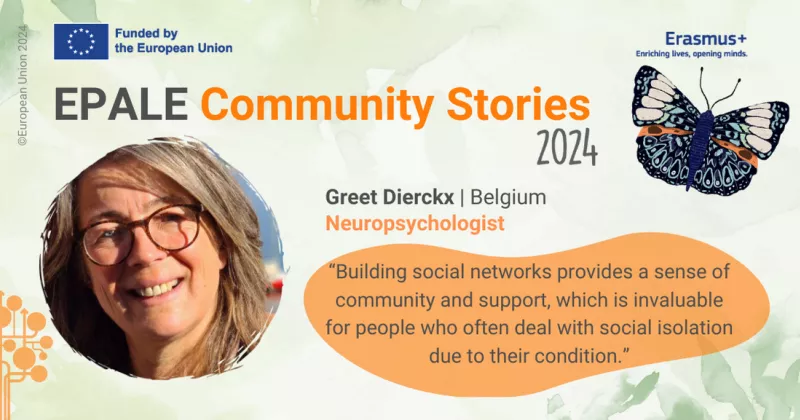
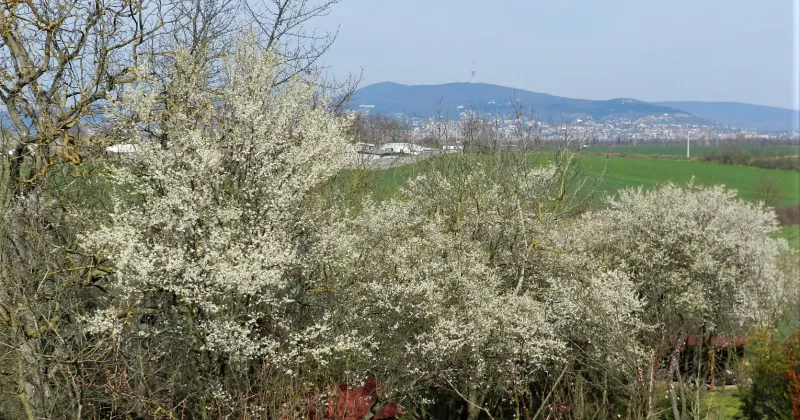
Az életvezetés területe nem…
Az életvezetés területe nem is lehetne aktuálisabb. A Covid hatása miatt talán ez az, ami leginkább fejlesztést igényel.